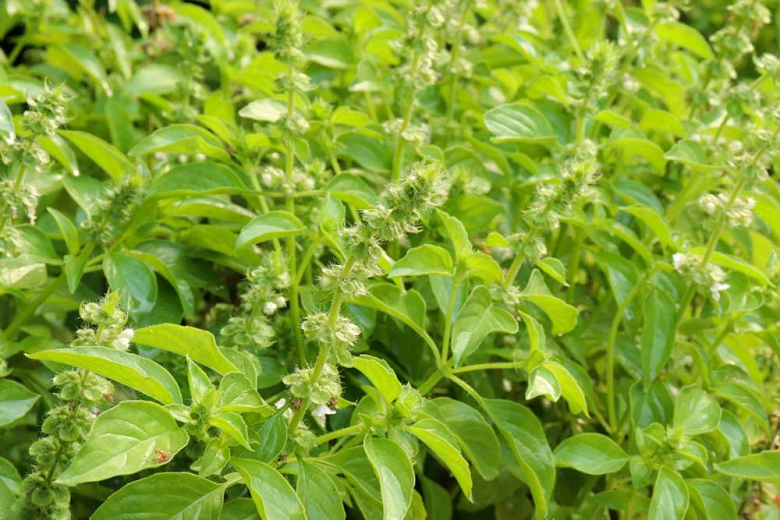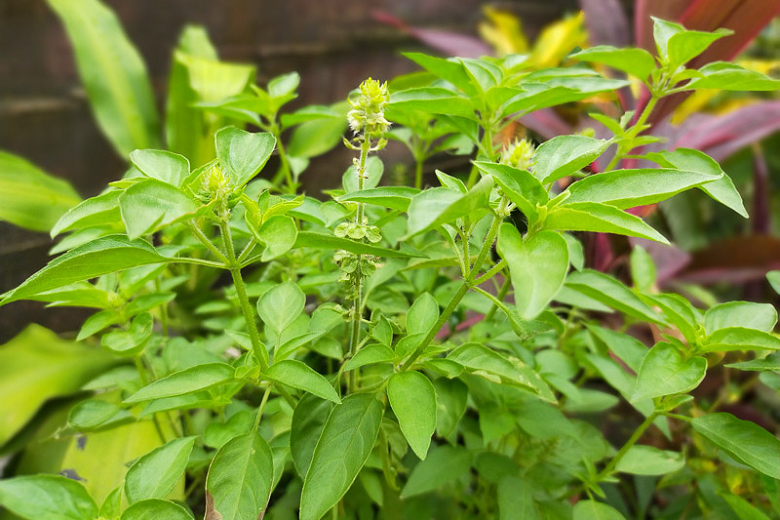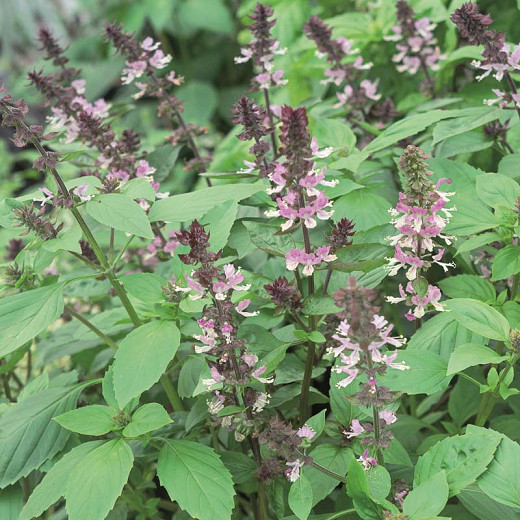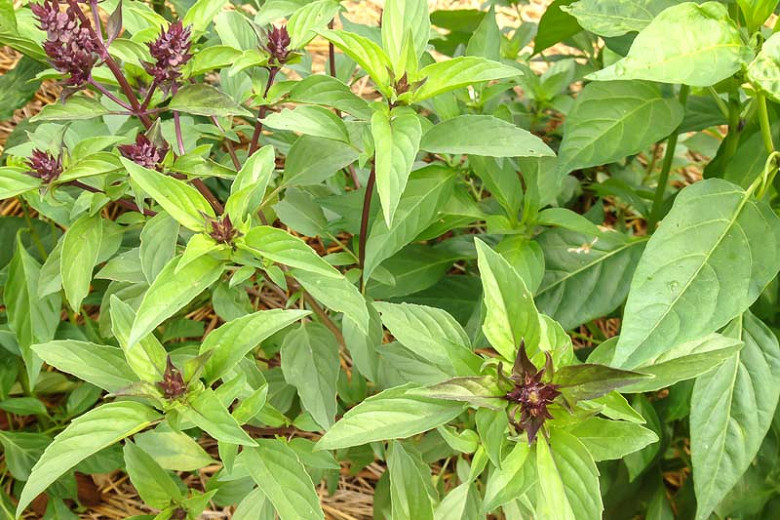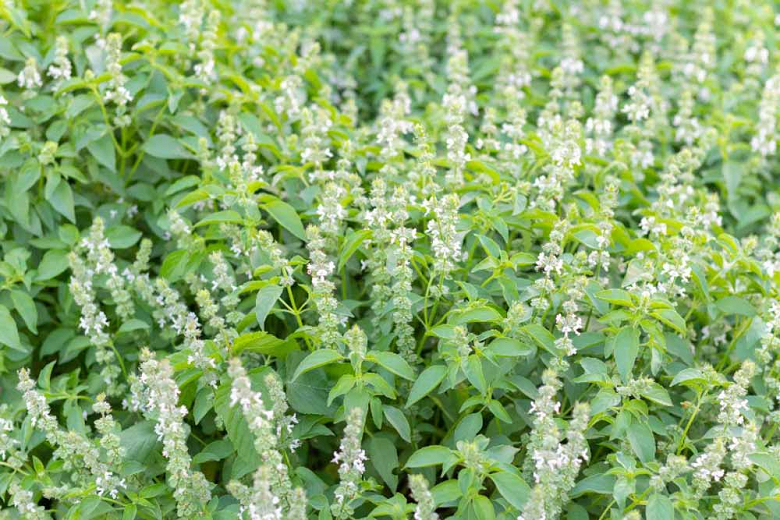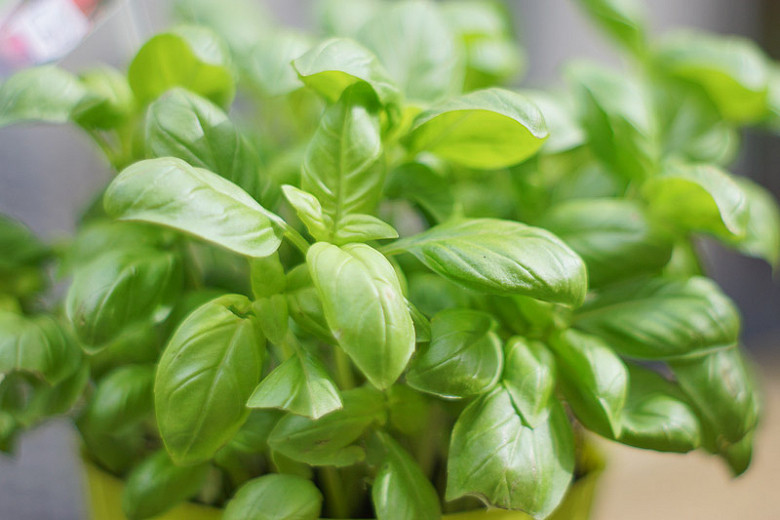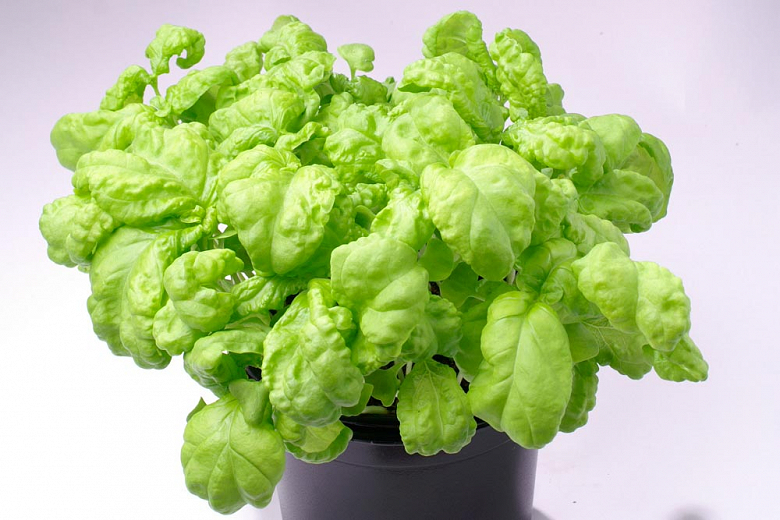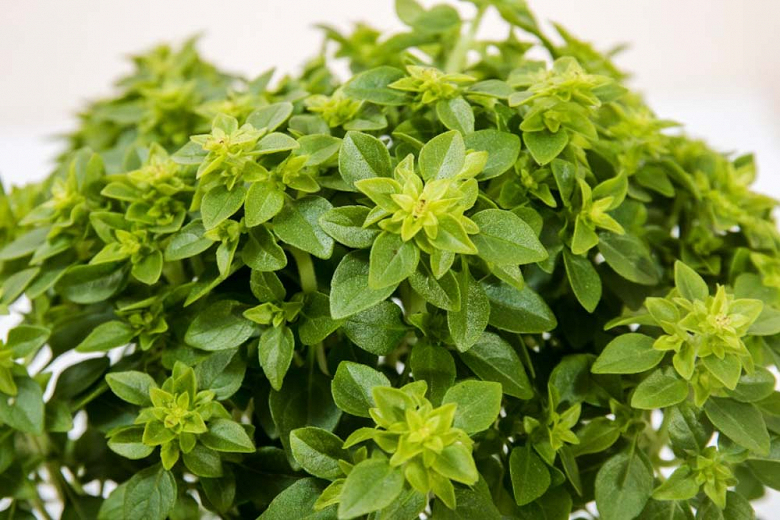Ocimum basilicum Lemon (Lemon Basil)
Aptly named, Ocimum basilicum 'Lemon' (Lemon Basil) is an upright, bushy annual with aromatic, intensely citrus-scented, bright green leaves. In summer, attractive spikes of lemon-scented, small white flowers arranged in whorls bloom on long, light green bracts. Prized for its refreshing and subtly sweet citrus fragrance, Lemon Basil is best suited as a finishing element and can be used in both raw and cooked applications. The leaves can be tossed into salads, minced into dips and vinaigrettes, or stirred into beverages, including cocktails, iced tea, and lemonade. Lemon Basil can also be rubbed over meats and mixed into rice, pasta, or noodle bowls. Lemon basil is highly perishable, losing flavor after a couple of days, and will keep up to three days when loosely wrapped and stored in the refrigerator.
- Grows up to 24 in. tall and wide (60 cm).
- Performs best in light, well-drained, fertile soil in a sheltered position in full sun. Water freely in summer. Basil is extremely frost sensitive.
- Harvest mature leaves for fresh use at any time.
- Although Basil naturally repels mosquitoes and flies, it attracts bees, butterflies, and other beneficial insects to the garden.
- Basil is a valuable addition to the vegetable garden and an excellent companion plant for tomatoes, peppers, parsley, lettuce, asparagus, beans, beets, cabbage, eggplant, marigolds, potatoes, or oregano. Avoid planting Basil near Rue (Ruta graveolens) and Sage (Salvia officinalis).
- While Basil makes a colorful and flavorful addition to many dishes, it can also provide some health benefits. Basil contains many vitamins and minerals, as well as antioxidants and essential oils. However, all these great compounds disappear during the process of drying, so opt for fresh basil whenever possible to enjoy the most benefits. Basil can help reduce inflammation in the body, lower blood pressure, fight free radicals, and reduce high blood sugar levels. Basil has antibacterial properties.
- No serious pest or disease issues. Keep an eye out for slugs, snails, and powdery mildews. Deer and rabbit resistant.
- Pinch out flowerheads as they appear to ensure continued leaf growth. Cut back after flowering.
- Propagate by seed in gentle heat in spring under glass or indoors.
Requirements
| Hardiness | 2 – 11 |
|---|---|
| Climate Zones | 1, 1A, 1B, 2, 2A, 3, 3A, 3B, 4, 5, 6, 7, 8, 9, 10, 11, 12, 13, 14, 15, 16, 17, 18, 19, 20, 21, 22, 23, 24, A1, A2, A3 |
| Plant Type | Annuals, Herbs, Perennials |
| Plant Family | Ocimum – Basil |
| Exposure | Full Sun |
| Season of Interest | Spring (Late)Summer (Early,Mid,Late)Fall |
| Height | 1' – 2' (30cm – 60cm) |
| Spread | 1' – 2' (30cm – 60cm) |
| Spacing | 18″ – 24″ (45cm – 60cm) |
| Water Needs | Average |
| Maintenance | Low |
| Soil Type | Loam, Sand |
| Soil pH | Acid, Alkaline, Neutral |
| Soil Drainage | Well-Drained |
| Characteristics | Fragrant |
| Tolerance | Deer, Rabbit |
| Attracts | Bees, Butterflies |
| Garden Uses | Beds and Borders, Patio and Containers |
| Garden Styles | Informal and Cottage |
